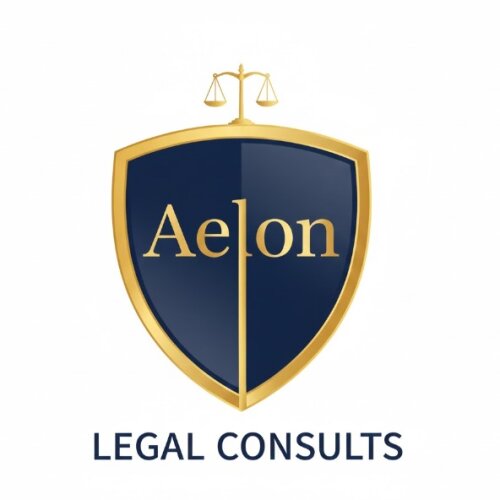Best Child Visitation Lawyers in Nigeria
Share your needs with us, get contacted by law firms.
Free. Takes 2 min.
Free Guide to Hiring a Family Lawyer
Or refine your search by selecting a city:
List of the best lawyers in Nigeria
About Child Visitation Law in Nigeria
Child visitation, also referred to as access, allows a non-custodial parent to spend time with their children. In Nigeria, child visitation rights are determined by the family court with the child's best interests as the central consideration. The primary legal framework governing child visitation is the Child Rights Act 2003, which aims to protect the welfare and interests of children in family law matters. However, the application of the Act varies across states, as its adoption is not uniform throughout the country.
Why You May Need a Lawyer
Several situations may necessitate seeking legal assistance for child visitation issues in Nigeria, including:
- Disputes over visitation schedules or denials of visitation rights by the custodial parent.
- Seeking to modify existing visitation arrangements due to changes in circumstances, such as relocation or changes in work schedules.
- Enforcement of visitation orders in instances where the custodial parent is non-compliant.
- Addressing concerns about the child's safety during visitation with the non-custodial parent.
- Understanding and navigating the complex family court processes or documentation related to child visitation.
Local Laws Overview
The key legal principles governing child visitation in Nigeria are rooted in family law and the Child Rights Act. Highlights include:
- Best Interest of the Child: The child's welfare is the paramount consideration in settling visitation disputes.
- Parental Responsibilities: Both custodial and non-custodial parents have mutual responsibilities towards their children, despite their living arrangements.
- Judicial Discretion: Family courts have considerable discretion in deciding visitation matters, often taking into account the wishes of older children.
- State Implementation: Since family law matters, including child visitation, fall under state jurisdiction, the application of laws can differ from one state to another.
Frequently Asked Questions
What factors do courts consider when granting visitation rights?
Courts consider the best interest of the child, the child’s age, each parent’s living situation, and sometimes the child's own wishes.
Can grandparents or extended family members be granted visitation rights?
Yes, courts can grant visitation rights to grandparents or other relatives if it is in the child's best interest.
What can I do if my ex-spouse denies my visitation rights?
You can file a motion for enforcement with the family court, which can compel the custodial parent to comply with visitation orders.
Can visitation rights be denied or suspended?
Yes, if the court believes visitation would harm the child physically or emotionally, rights can be denied or conditions may be imposed.
How are visitation rights enforced across different Nigerian states?
While the basic principles are similar, enforcement processes may vary, and local state laws should be consulted for specifics.
Am I allowed to relocate to another state with my child?
Relocating might require court approval, especially if it impacts the non-custodial parent's visitation rights.
Is mediation available for resolving visitation disputes?
Mediation is often encouraged to amicably resolve disputes and arrive at agreements that respect both parents' roles and the child's needs.
What legal documentation is required to file for visitation rights?
Filing usually involves a petition stating the reasons for visitation and may require additional documents or witness statements.
Can I modify a visitation order?
Yes, modification requires demonstrating significant changes in circumstances affecting the child's welfare.
What is supervised visitation?
This is a court-ordered arrangement where a third party observes interactions between the non-custodial parent and child to ensure safety.
Additional Resources
Several resources may be helpful for those seeking legal advice on child visitation in Nigeria. These include:
- Legal Aid Council of Nigeria: Provides legal assistance to ensure access to justice.
- State Departments of Child Welfare: Offer additional support and information on child rights.
- Non-Governmental Organizations (NGOs): Such as The Child Rights Advancement and Protection Initiatives.
- Family Courts: Direct source for proceedings regarding visitation rights and processes.
Next Steps
If you require legal assistance concerning child visitation issues, consider the following steps:
- Consult a family law attorney with specific expertise in child visitation.
- Gather relevant documentation, such as existing court orders, communication records with the other parent, and any evidence related to the visitation issues.
- Explore mediation services as a non-adversarial approach to resolving disputes.
- Visit a family court for guidance on filing procedures and requirements specific to your case.
Taking timely legal advice can significantly influence the resolution of visitation disputes, ensuring the best possible outcome for the child involved.
Lawzana helps you find the best lawyers and law firms in Nigeria through a curated and pre-screened list of qualified legal professionals. Our platform offers rankings and detailed profiles of attorneys and law firms, allowing you to compare based on practice areas, including Child Visitation, experience, and client feedback.
Each profile includes a description of the firm's areas of practice, client reviews, team members and partners, year of establishment, spoken languages, office locations, contact information, social media presence, and any published articles or resources. Most firms on our platform speak English and are experienced in both local and international legal matters.
Get a quote from top-rated law firms in Nigeria — quickly, securely, and without unnecessary hassle.
Disclaimer:
The information provided on this page is for general informational purposes only and does not constitute legal advice. While we strive to ensure the accuracy and relevance of the content, legal information may change over time, and interpretations of the law can vary. You should always consult with a qualified legal professional for advice specific to your situation.
We disclaim all liability for actions taken or not taken based on the content of this page. If you believe any information is incorrect or outdated, please contact us, and we will review and update it where appropriate.
Browse child visitation law firms by city in Nigeria
Refine your search by selecting a city.















